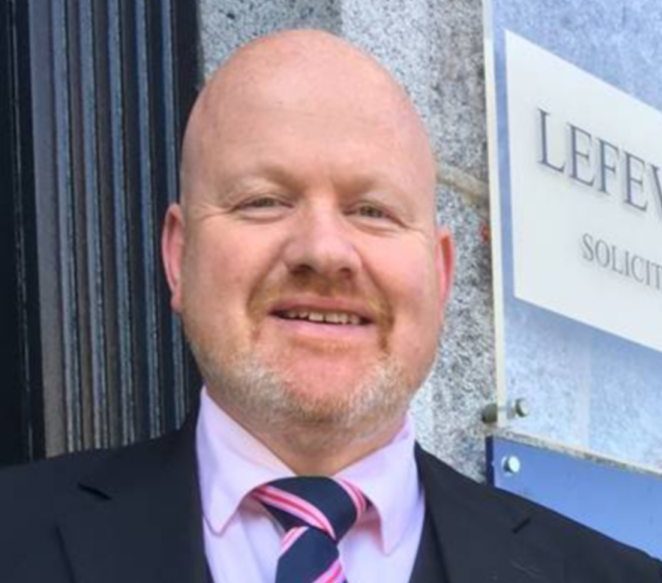Aberdeen solicitors have given a mixed reaction to a new type of court meeting introduced last month.
Pre-intermediate diet meetings (PIDMs) were brought in at courts across the country from December 1 in a bid to help tackle a backlog of cases and also reduce footfall in courts due to the pandemic.
The meetings, which are not held in open court, allow the defence solicitors and fiscal deputes to discuss the case, with a view to resolves more cases at an earlier stage and avoiding unnecessary court appearances.
They are held around two weeks before the intermediate diet, which is a pre-trial hearing, to check on trial preparations and allow an accused person an opportunity to change their plea to guilty.
Stuart Murray, president of the Aberdeen Bar Association had criticised the PIDM system before it was introduced, calling it a “pointless exercise”.
But with the meetings being in place for more than a month now, solicitors in Aberdeen gave them a mixed reception, acknowledging some positives but citing “teething problems” as well.
Gregor Kelly, a partner with Lefevre Litigation, said: “It’s fully appreciated that the PIDM system is designed to reduce footfall in the courts at a time when the virus is once again rife and it is to be applauded in theory to increase communication between crown and defence.
“There have been some initial technical teething problems and it is hoped that these will be ironed out. It is important that both members of the pubic, court staff and legal professionals are kept safe at this difficult time.”
Leonard Burkinshaw, of Burkinshaw Criminal Defence, said: “It does seem like just another layer of bureaucracy that’s not really needed.
“The difficulty with it is because these diets are even earlier, our difficulty is getting the disclosure in time to know what the case if fully about and also speaking to the client within that period of time to get full instructions.
“You’re almost having two intermediate diets.
“The only positive would be that if you do manage to get the disclosure and speak to your client, at least you’re able to have direct contact with the fiscal.”
Paul Barnett, a partner with George Mathers and Co, said he had encountered difficulties with arranging meetings, and that the system “doesn’t work well”.
He said: “My thoughts in relation to PIDMs are that the booking procedure is fairly cumbersome and it’s often the case that there are no available slots on the date that the PIDM has been allocated to or it’s not possible to get a time slot when the defence agent is free because of court commitments.
“This is no doubt due to a lack of resources made available to the fiscals service.
“When I have been able to speak to a fiscal then it can often lead to the case being resolved either by the fiscal being persuaded that it’s no longer in the interests of justice for the case to proceed or by an acceptable plea being negotiated but I don’t think the PIDM system is necessary to enable that conversation to take place.
“It has also created confusion about whether the case will actually then call at the intermediate diet, with many instances of an agreement being reached between crown and defence that the case can be dealt with administratively and doesn’t need to call, but the court then takes a different view.
“This makes organising other court commitments extremely difficult.
“I think the whole idea was well-intended but doesn’t work well, certainly in Aberdeen, principally due to a lack of resources available to both crown and defence.”
Laura Gracie, of Burn and McGregor, said there were both pros and cons to the scheme.
She said: “I am not against the idea of PIDMs however it cannot be at the cost of defence agents being able to participate fully and effectively.
“I know that everyone is still getting to grips with the system and everyone is trying their best however we are still not getting an extract of the PIDM from the crown. This means we are solely relying on them to get the information correctly to the court outlining the crown and defence position.
“Recently we had a case that had to call as the crown had said we didn’t engage. That was incorrect and had I seen the crown submission in advance I could have corrected it, saving the case calling.
“There is also the other issue where you agree at the PIDM that a case won’t call as we are agreed it will continue to trial.
“The court confirms it won’t call then at 10.30am or 11am on the day of the ID you find out it does have to call as there are no trial slots left on that day.
“I genuinely think it could work well to reduce footfall in a very crowded ID court but it needs everyone to fully comply with the practice note.”
A spokesman for the Crown Office and Procurator Fiscal Service (COPFS) said: “COPFS will continue to work closely with justice partners to respond to the challenges the sector has faced and promote good communication with the wider legal profession to make improvements that will not only benefit the justice system now, as it recovers from the effects of the pandemic, but in the years to come as well.”
A Judicial Office for Scotland spokeswoman said teething issues had now been “resolved”
She said: “As with many new systems, some minor teething problems required to be ironed out while working with the various parties involved in this process.
“These have now been resolved.
“In terms of the Coronavirus Act 2020, the accused is not required to attend any diet other than a trial diet, and this guidance will decrease the footfall of participants in court buildings, reducing the risk of spreading the virus at this crucial time.
“The current pandemic has presented very challenging circumstances, and the courts, along with those involved in the initiative including the prosecutors and the defence solicitors, are working extremely hard to deliver justice in an environment that is safe for all participants.”


